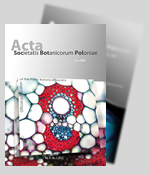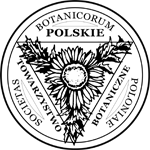Abstract
Investigations were carried out on pollen grains of Scots pine (Pinus sylvestris L.) collected from trees at 1.5, 3, 4 km and control, 20 km from the Luboń factory producing mineral fertilisers. The percentage of germination of pollen formed close to the pollution source was ca 20% lower compared to the control pollen. Lowered vitality of the pollen was effected in changes of the structure of cytoplasmic membranes. Pollen from the polluted area contained ca 15% less total phospholipids, mainly phosphatidylcholine and phosphatytidylinositol and had a lower content of soluble proteins and less of low molecular antioxidants, such as thiols and ascorbic acid. Composition of total fatty acid in phospholipids fractions showed a significant reduction in the degree of unsaturation of fatty acids. Pollen originating from the polluted area and stored at -30°C showed considerably stronger degradation of cytoplasmic membranes than control.
Keywords
antioxidants; environmental pollution; freezing stress; fatty acids; membranes; phospholipids; Pinus; pollen grains







